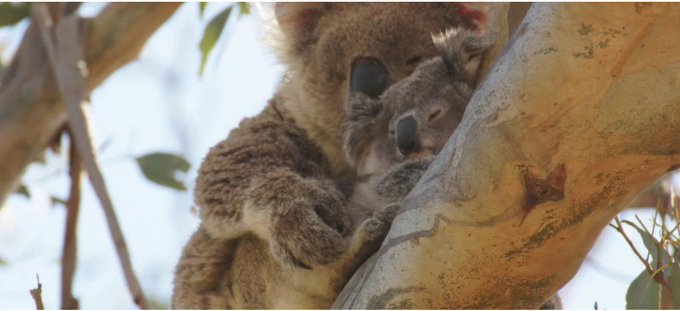$1m funding for University of Sydney to sequence koala genomes
Federal Environment Minister Sussan Ley and NSW Environment and Energy Minister Matt Kean today announced funding for University of Sydney scientists to sequence 400 koala genomes, to gain insights into the vulnerable species.
The University of Sydney is the recipient of more than $1 million to sequence hundreds of koala genomes across the eastern seaboard, to protect the species from disease and other threats.
Federal Minister for the Environment Sussan Ley and NSW Minister for Environment and Energy Matt Kean announced the funding on campus today.
The Commonwealth is investing $348,450 for the genome sequences of koalas from Queensland and Victoria along with a researcher to develop the genome library in 2021, while the NSW Government is contributing $674,000 to sequence genomes of koalas from NSW populations.
Amazon Web Services (AWS), through its Open Data Sponsorship Program, is covering the costs of the storage and transfer of the data for the University of Sydney while they are participating in the program, so that it can be accessed and analysed in the cloud by researchers around the world.
The project will genetically map a bank of samples already in hand and build it over coming years through the national koala monitoring program and koala recovery plan to be finalised this year. It builds on recent world-first sequencing of the koala genome led by the University of Sydney and the Australian Museum.
University of Sydney Vice-Chancellor and Principal Professor Stephen Garton thanked the Commonwealth and NSW environment ministers and Amazon for their support that will enable the genomic sequencing of 400 koalas.
“This is a foundational dataset which will accelerate our understanding of koalas along the eastern seaboard – particularly in relation to the future adaptive potential of this vulnerable species,” Professor Garton said.
Federal Minister for the Environment Sussan Ley said: “This is breakthrough science that has never been applied to a native species population at this scale, and it will play an important role in strengthening the koala population.”
NSW Minister for Environment and Energy Matt Kean said: “We know the number one threat to koalas is the loss and fragmentation of habitat, but koalas are also at risk from threats such as disease and climate change; we need to pull out all stops to support thriving and resilient koala populations.”
Professor of Comparative Genomics Kathy Belov, who was part of the team that sequenced the first koala genome in 2018, said historically koala populations have moved freely across the east coast but as populations become fragmented the importance of maintaining genetic diversity increased.
“Levels of genetic diversity in a population determines how well that populations can adapt and respond to change, whether that be disease, behaviour or climate,” explained Professor Belov, who is also Pro Vice-Chancellor (Global Engagement).
Senior Research Manager of the University’s Australasian Wildlife Genomics Group in the School of Life and Environmental Sciences, Dr Carolyn Hogg, said the project would create a legacy for koala conservation, being a point in time across their range and enabling the measurement of future changes against this reference point.
“Genomes provide us with the ability to create a suite of downstream applications that can all be used for management of the species in the long-term,” Dr Hogg concluded.
About the sequencing:
Whole genome sequencing means researchers will be able to answer a range of questions pertaining to, for example, population size, future adaptive potential, disease and reproduction. It will also allow them to understand whether some populations have unique genetic variants. This is particularly important for those populations under threat, ensuring that those unique variants are captured before they are lost; or for populations which have unique variants and require investment in habitat restoration or expansion of their existing habitat.
Open data access will ensure that the genome data is available for any researchers as it is produced.
This is a foundational dataset, which will accelerate understanding of koalas – particularly in relation to climate change and the adaptive potential of the species.

